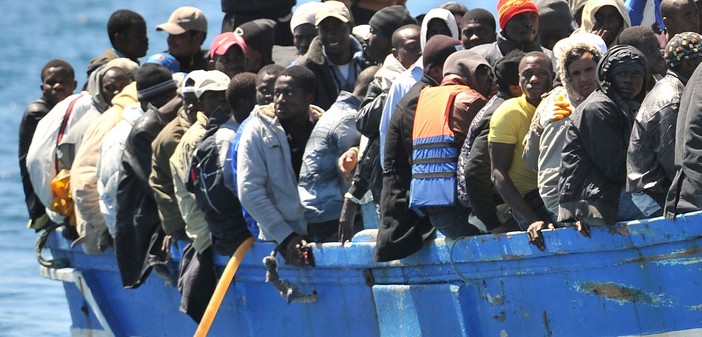Christian Estrosi, always quick to respond when it comes to supporting the basic instincts (fear being one of them) of his citizens, is firmly opposed to the presence of groups of illegal migrants of African origin who have recently arrived in large numbers, in Nice and elsewhere, slipping through border controls at Ventimiglia.
In short, we don’t want those people here who disturb, dirty, and bring nothing but … problems.
Without delving into a sociological analysis of migration that would take us far from current events, the fact remains that they are here, today, as some were yesterday and others will undoubtedly be tomorrow.
So, what do we do besides asking for this “disruption” to stop?
We write to the Prefect (that’s good), we call out the Minister of the Interior (that’s very good), we accuse the Prime Minister (that’s even better), we sanction government policy (that always helps). The whole package!
@cestrosi 50 migrants are occupying the square in front of Thiers train station in #Nice06. I am asking the Prefect for the utmost firmness. I have asked @BCazeneuve to ensure police reinforcements to combat the influx of migrants #Nice06.
And after that? We would like to make these inconveniences disappear, but how? The easiest solution is to move them to the neighbor and there you go…
Sure, there are regional elections, the FN is on the lookout, but isn’t there nevertheless a difference between the passion for power and maintaining reason?
As for the problem at hand, we must start from a certainty: for at least the next ten years, EU countries will be dealing with a massive migration issue.
Last year, nearly 170,000 migrants arrived in Italy, the easiest entry point for them. This number will likely be exceeded in 2015 as the situation has further deteriorated in many countries. The capacity of reception centers has been increased to 80,000 places, which is already enormous from an organizational point of view.
But not all migrants want to stay in Italy, quite the contrary. Last year, Germany (which also provides asylum for people coming from the East and the Balkans, for example, 500,000 Kosovars reside there) issued 170,000 residence permits, and Sweden 92,000.
Just this last weekend, more than 6,500 migrants arrived on the Sicilian coast. And this doesn’t even touch on the human tragedies of the hundreds, thousands of deaths that fill the waters of the Mediterranean, turning Mare Nostrum into a vast maritime cemetery!
The truth is that all European governments (we’ll stop here even though this is a global issue), under the influence of populism in public opinion, prefer to play the role of policemen rather than tackle the problem properly.
This is where it hurts: Frontex, which is the European agency responsible for border control, as its name suggests, is not adequately equipped, and the Mare Nostrum and Triton operations (which have reached €9 million in funding per month!!!) are mere band-aids that only attempt to stop the bleeding, and even then…
The truth is that the 28 EU countries do not want to decide on a unified asylum policy around key areas, such as a common management of visas and transits, and the distribution of immigrants based on absorption capacity.
In fact, it would require a solidary and coordinated policy to manage these flows by putting an end to these traffics that enrich criminal organizations;
Then, the definition and implementation of an economic development plan for the poorest regions to create minimal living conditions for people living in these areas.
Of course, all of this requires a vision for the future and a complex, long-term strategy.
It’s easy to understand why it’s easier to side with those who shout and raise their arms to the sky, pouring oil on the fire with the obvious risk of it spreading even more.
@estrosi: Let’s reform Schengen, even if it means withdrawing from it, sink empty boats & impose an aerial and maritime blockade on southern coasts.
Should we remind a former Minister that the so-called Schengen area has been fully implemented in France since March 1996 and that subsequently, the Lisbon Treaty, signed on December 13, 2007, aims for a pooling of visa, asylum, and immigration policies, notably by replacing the intergovernmental method with the community method?
Just for the record: it was two right-wing governments in office on those two dates.
As for the blockade, regarding the morality of behaviors, advice should be sought from the Diocese!


